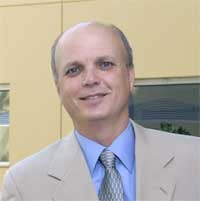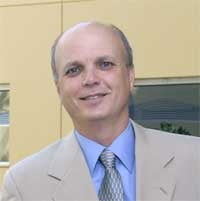 Kingston resident heads higher education assessment
Kingston resident heads higher education assessment
KINGSTON, R.I. – February 23, 2011 – If you want to know what the accounting profession and accounting education are going to look like 20 years from now, you might want to ask Mark Higgins.
The dean of the University of Rhode Island’s College of Business Administration, Higgins has been named to the Pathways Commission, a national initiative to study the future and content of accounting education.
A 2008 report by the U.S. Department of the Treasury Advisory Committee on the Auditing Profession recommended that the American Accounting Association and the American Institute of CPAs establish a commission that would identify, explore and establish a national higher education strategy for the accounting profession.
Higgins and others with the commission are addressing conditions that could affect the ability to prepare the next generation of accountants, business leaders and accounting scholars.
“We have to think differently and consider what accounting is going to look like in 2030,” the Kingston resident said. “The big question is what skills and competencies do students need and how do we get students interested in the accounting profession. We need accounting firms, corporations and universities to work together to prepare the next generation of accounting and business leaders. Another issue is how do we ensure that there are enough doctoral qualified accounting faculty to teach these students”
Higgins said there are six commissioners and 33 representatives working with the group. Those 33 have been named to three distinct supply chains: high school preparation, including attracting the best and brightest high school students to undergraduate accounting majors, advanced placement courses and community college preparation; higher education, including master’s and doctoral preparation; and continuing education, including regulatory issues.
Higgins, the former president of the American Taxation Association, heads the 11-member higher education group.
“We will be looking at the shortage of instructors with doctorates,” Higgins said. “We need qualified teachers to prepare the next generation of accounting professionals. Doctoral programs are expensive, but if we don’t invest in them, the profession will suffer.”
Higgins, who heads a business college that offers the bachelor’s degree through the doctorate, was at a meeting last October in Washington, D.C. to lay the foundation with his team, and talks with team members by conference call every two weeks. He traveled to Atlanta again this next week for a public meeting on these issues. Another Rhode Islander, the former Rhode Island auditor general and immediate past chairman of the American Institute of CPAs, Ernest Almonte, who is currently a partner at DiSanto, Priest and Co., is a member of Higgins’ supply chain.
“It’s a national issue,” Higgins said. “If institutions are not going to invest in preparing doctoral candidates to teach accounting, we will not have the experts needed to educate the next generation of business leaders.”
The Pathways Commission website says that the accounting profession plays a critical role in ensuring the highest integrity in financial reporting and analyzes and interprets information so critical for decision-making. The profession must understand the complexities of the constantly changing business environment and translate those complexities in ways that improve transparency, foster the highest integrity and enhance competitiveness.
Higgins said doctoral programs must be aggressive in seeking what he terms ideal candidates for pursuing the doctorate: individuals with three to four years of experience in public accounting firms. “Those who leave public accounting to pursue a doctorate with the goal of joining a college faculty, who upon completion of their degree will be able to make a nice living.”
But he said current faculty need incentives to take on more Ph.D. students, and those incentives need to come from institutions themselves or from other sources.
“We have to do more in the way of providing assistantships for our doctoral candidates, and more for our professors who spend a great amount of time with these candidates,” Higgins said.
URI Department of Communications & Marketing photo by Michael Salerno Photography.

